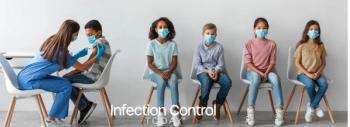
Infection Preventionists to Get More Personal Protective Equipment, Trump Vows
According to the United States Conference of Mayors, cities need 28.5 million face masks, 24.4 million other pieces of PPE equipment, 7.9 million COVID-19 test kits, and 139,000 ventilators.
It appears as if the federal government will finally respond to calls for more personal protective equipment (PPE) that infection preventionists (IPs) desperately need to fight COVID-19. Yesterday started with the leaders of the Association forProfessionals in Infection Control and Epidemiology (APIC) painting a dire picture of just what’s happening on the frontlines.
At a press conference, Connie Steed, MSN, RN, CIC, FAPIC, and APIC’s president, said that the organization “is calling on the federal government to activate the
By yesterday afternoon, Steed’s call-part of a chorus of
However, as the
“In a late-afternoon news conference, Mr. Trump said, ‘Now it turns out we will have to be producing large numbers’,” the Timesreports. “He said that over the next 100 days, ‘we will either make or get, in some form, over 100,000 additional units,’ more than three times the nation’s annual production. Later, he insisted, ‘We’re going to have plenty’.”
And we’re going to need plenty.
According to the
Katrina Crist, MBA, CAE, and APIC’s CEO, said that “infection preventionists across the country are reporting dire shortages of respirators, mask, gowns and other supplies needed to protect patients and healthcare workers…. By respirators we mean N95 filtering face pieces and other filtering devices.”
APIC surveyed 1140 IPs across the country on March 23-25 to get a snapshot with how they’re doing. It’s not a pretty picture. Forty-eight percent of respondents said that they were dangerously low on respirators, with 20% of that 48% saying there’s no more left. In addition, 37% of respondents said that they were almost out of face shields and 26% said they were nearly out of hand sanitizer.
“This is simply unacceptable,” said Crist. “Shortages of critical PPE and disinfection supplies are jeopardizing our ability to safely treat patients and protect the healthcare workers who put their lives on the line every day. The survey shows that we must act, and we must act now.”
Steed emphasized the crucial part IPs play in the battle against COVID-19. “The role of the infection preventionist as a coach, mentor and leader in our hospitals, has never been more important,” Steed said. “I know as a frontline infection preventionist in the facilities where I work, how challenging this role is. But it’s vital to help our healthcare providers every day, get through this trying time. But if we can't equip our healthcare workers who are assessing and treating COVID-19, we can’t stop the virus from spreading.”
Ann Marie Pettis, RN, BSN, CIC, FAPIC, APIC’s president-elect, works in New York State, which she called the epicenter of the COVID-19 outbreak in the United States. “Cases and deaths are rising by the day and honestly, what it really feels like is that there's no light at the end of the tunnel,” said Pettis. “And given how rapidly this virus is spreading, other states and cities will in all probability soon face the same situation.”
The APIC survey shows that PPE shortages are being felt everywhere in the nation.
“And as an infection preventionists our days are spent frantically searching for PPE, advising fellow clinicians on how to reuse masks, gowns, goggles, and all the other PPE that they currently have, or actually how to create their own,” said Pettis. “And truly this goes against everything we have known from the scientific evidence, and what we have always taught our staff. We’re trying to protect our coworkers as best we can. But we need help now.”
Newsletter
Stay prepared and protected with Infection Control Today's newsletter, delivering essential updates, best practices, and expert insights for infection preventionists.




